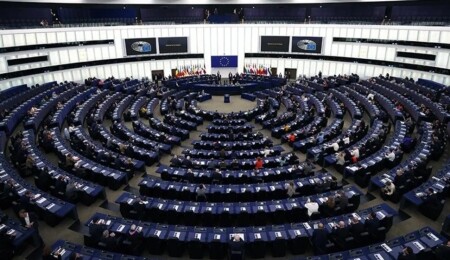Despite the far right's gains in June's European Parliament elections, traditional mainstream party alliances maintained their overall majority and helped Ursula von der Leyen secure reelection as Commission chief.
However, three hard-right groups now hold 187 out of 720 seats, emerging as a formidable force that the conservative European People's Party (EPP) group, led by Ursula von der Leyen, appears increasingly willing to align with.
Officially, the EPP maintains its stance of not cooperating with the far right.
"There is no cooperation with the far right," EPP leader Manfred Weber emphasized, stressing that cooperation criteria include being pro-Europe, pro-Ukraine, and pro-rule of law. Similarly, French EPP lawmaker Francois-Xavier Bellamy insisted there is no "change of course."
Despite the assurances, left-wing and centrist partners within the EPP perceive a shift in alliances.
"The alliance of right-wing forces you're seeing in several European countries is happening in the parliament too," noted Younous Omarjee, a hard-left EU lawmaker and one of the parliament's vice-presidents, who is concerned about potential setbacks in environmental and fundamental rights progress.
The European Conservatives and Reformists, led by Italy's Giorgia Meloni, have already made headway by securing a vice-presidency in von der Leyen's new commission. Meanwhile, the Patriots of Europe, launched by Hungary's nationalist prime minister Viktor Orban, and the more radical Sovereignists, remain outside the mainstream power structures due to an informal "cordon sanitaire" meant to exclude the extreme right.
"These two political groups definitely fall under the far-right definition," commented Malta's Alex Agius Saliba, a senior lawmaker with the Socialists & Democrats.
"But unfortunately it seems the EPP are not sticking with the cordon sanitaire."
Last month, the Patriots collaborated with the EPP to pass a resolution recognizing Venezuelan opposition candidate Edmundo Gonzalez Urrutia as president following the disputed election in Venezuela.
Weber defended the resolution as consistent with the group's established stance, but French EU lawmaker Raphael Glucksmann labeled the vote a "tipping point," warning that the EPP might leverage partnerships with the Patriots to bypass centrists in future negotiations.
Weber also faces accusations of seeking support from the Patriots and Sovereignists in the Conference of Presidents, where parliamentary group leaders set the political agenda.
Earlier this month, tensions flared during confirmation hearings for new EU commissioners when the right and far right joined forces to assert their priorities.
This week, the EPP and Patriots succeeded in adding a debate on preventing EU funds from being channeled to "terrorist or Islamist movements" during the parliament plenary in Strasbourg.
While these moves may not dominate headlines, EU observers like political analyst Sophie Pornschlegel of the Jacques Delors think tank note a pattern of eroding barriers keeping the far right at bay.
"The EPP's argument is to say, 'We are not working with them — but we can't help it if they want to vote along with us,'" she explained.
Despite the continued presence of an "institutional majority" that supported von der Leyen's reelection, centrists like Pascal Canfin express concerns that this could lead to regular deals with the far right, considering such moves a betrayal.
Nacho Sanchez Amor, the Socialists & Democrats coordinator on foreign affairs, urged the EPP to reconsider, emphasizing the long-term stability of the Commission and the EU.
Meanwhile, the Patriots see the situation as an opportunity. An official from the group pointed to the Venezuela vote as evidence of a new power balance, suggesting that the traditional cooperation among the EPP, centrists, and Socialists may no longer dominate the parliament's future dynamics.
Source: HDN




Comments
Attention!
Sending all kinds of financial, legal, criminal, administrative responsibility content arising from illegal, threatening, disturbing, insulting and abusive, humiliating, humiliating, vulgar, obscene, immoral, damaging personal rights or similar content. It belongs to the Member / Members.